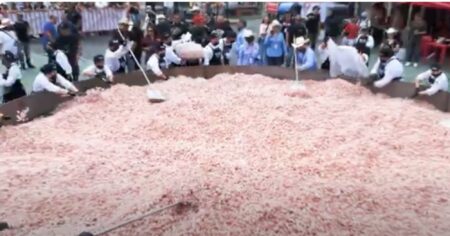R-CALF USA has formally requested that the Commodity Futures Trading Commission open an immediate investigation into what the group alleges was a false report that triggered a sharp selloff in live cattle futures on May 27.
In a letter addressed to Brian Young, director of the CFTC’s Division of Enforcement, R-CALF USA called on the agency to investigate whether the rumor — centered on a claim of New World Screwworm detection in Missouri — was willfully fabricated to manipulate cattle markets.
“We are deeply concerned that this potential manipulation harmed our nation’s independent cattlemen and women who rely on accurate market information to make informed business decisions,” said R-CALF USA CEO Bill Bullard.
According to R-CALF’s letter, the false report allegedly originated on a radio station’s website and was subsequently circulated in brokerage market reports. The Missouri Department of Agriculture and the U.S. Department of Agriculture quickly denied the claim, stating no screwworms had been detected.
“Unfounded rumors are circulating regarding New World Screwworm in Missouri. To date, the Missouri Department of Agriculture and United States Department of Agriculture has received no notification of New World Screwworm detection in Missouri,” the Missouri agency stated. “Any outlets publishing articles containing false or unfounded information are asked to remove the erroneous information immediately.”
The USDA echoed that position:
“Reports that the USDA has confirmed the detection of New World screwworm in the United States are not true. USDA is working with international partners to prevent NWS incursion into the United States. USDA has suspended imports of live cattle, horses, and bison through southern border ports of entry to prevent further spread of the parasite. Should USDA detect NWS in the United States, we will rapidly respond in coordination with state partners to eliminate it. We will also share information with all stakeholders. Please see USDA’s Animal and Plant Health Inspection Service website for the latest information.”
R-CALF’s letter notes that under 7 U.S.C. § 9(1)(A), the Commodity Exchange Act prohibits false or misleading reports that affect commodity prices in interstate commerce. If the origin of the NWS rumor is proven to be deliberate, the consequences for market integrity—and producers who suffered financial loss — could be serious.
Bullard wrote, “I am concerned that if the foregoing reports are true, and if someone did in fact willfully issue a false report regarding the detection of NWS, the integrity of the live cattle futures market and live cattle cash markets could be compromised to the detriment of the entire U.S. live cattle industry.”
The incident comes amid rising concerns over the actual spread of screwworms in Mexico. According to a Reuters report, the parasite has advanced northward, prompting the USDA to suspend imports of cattle and other livestock from Mexico. Although no cases have been detected in the U.S., the threat remains, and federal agencies are working with international partners to control its spread.
R-CALF USA has asked the CFTC to act swiftly, citing potential economic harm and the need to restore trust in the integrity of cattle markets.


:max_bytes(150000):strip_icc()/Diseaseplaybookksouthernrust-b5873b78fd1949cab74ab000f2db061b.jpg)
:max_bytes(150000):strip_icc()/6895916340_5f396535f9_o-972ad5a673d34233ba418fcaee4f3f33.jpg)
:max_bytes(150000):strip_icc()/Early-season-soybeans-cow-blue-clouds-red-a838f0f2bee64551b206352f7b6a9bde.jpeg)







